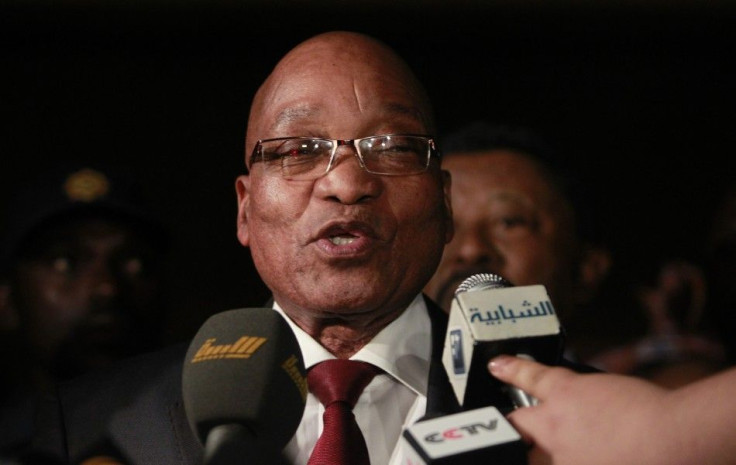SA's Pres Nixes Mine Nationalization

(REUTERS) -- President Jacob Zuma squashed more than two years of talk on Friday about the nationalisation of South Africa's massive mining sector, saying state control or ownership of the mines in the world's biggest platinum producer could not work.
Asked during a televised breakfast briefing if the government planned to nationalise mines, Zuma said emphatically: We're very clear. It is not our policy. We've been saying this inside the country, outside the country. It cannot be.
We have answered this question many times. We are very clear, he added. Our policy is mixed economy.
Coming at the end of a week in which two senior ministers dismissed nationalisation as unviable and the ruling ANC released a study describing it as an unmitigated disaster, Zuma's comments lay to rest two years of debate that hit South Africa's image as an investor-friendly emerging market.
Radical elements within the African National Congress (ANC) are still likely to float an idea first raised by Youth League leader Julius Malema, especially as the party approaches major conferences in June and December.
However, Malema's suspension from the party at the end of last year for disciplinary offences and the growing ranks of declared and heavyweight opponents of nationalisation mean the idea is not going anywhere.
You cannot ask for greater clarity, said political consultant Nic Borain. If you look at the words the document uses, and you take what Zuma said today, I think we can put this issue to bed.
Read altogether, this is the ANC very clearly saying 'Our task as government is to get the most out of these resources.' Nationalisation would be a catastrophe.
HIGHER TAXES
Malema remained defiant over the nationalisation issue on Friday, telling a meeting of the Youth League leadership: We will never retreat.
Criticising pure disregard and disrespect of what he said were ANC guiding principles, the party's youthful rebel said the study recommending against mines nationalisation contradicted the movement's 1955 Freedom Charter.
The Freedom Charter said the mineral wealth beneath the soil, banks and monopoly industry shall be transferred to the ownership of the people as a whole, Malema, wearing a yellow T-shirt and a black beret, said in comments which also rejected the ANC's disciplinary proceedings against him.
Even though the threat of nationalisation has been removed, South Africa's mining sector - the fifth biggest in the world by value - faces the prospect of higher taxes and royalties as the government tries to squeeze out better returns for the country's 50 million people.
The ANC has always had a testy relationship with the mines, the economic backbone of the apartheid state, and affirmative action policies since the end of white-minority rule in 1994 have struggled to overturn that legacy.
The mining research released this week proposed a hefty 50 percent tax on profits once a reasonable return had been achieved, although it offset the impact with a promised reduction in mineral royalties.
Economists said hiking taxes for a sector that is also facing rising labour and power costs should not be undertaken lightly.
We keep looking over our shoulder at the legacy issues, when the rest of the road ahead is full of pot holes, said Colen Garrow, an economist at investment firm Brait.
Taxation has to be taken very sensitively because the industry locally is in recession.
The government is also in the process of building a state mining company to ensure cheap domestic supplies of minerals such as coal and iron ore that are essential to a developing economy. Some analysts believe this may yet evolve into significant state control of specific areas of mining.
While I am convinced that general nationalisation is not on the cards, I don't believe targeted nationalisation is no longer a consideration, said Allan Reid, a director at law firm Cliffe Dekker Hofmeyer.
© Copyright Thomson Reuters 2024. All rights reserved.












